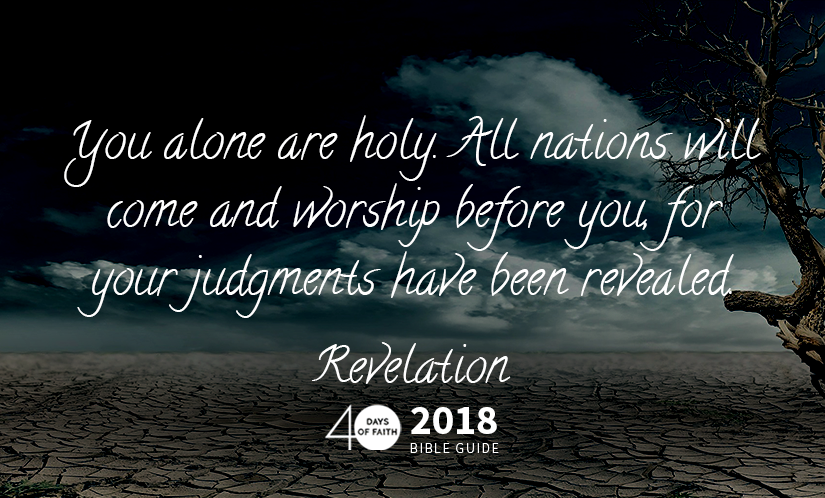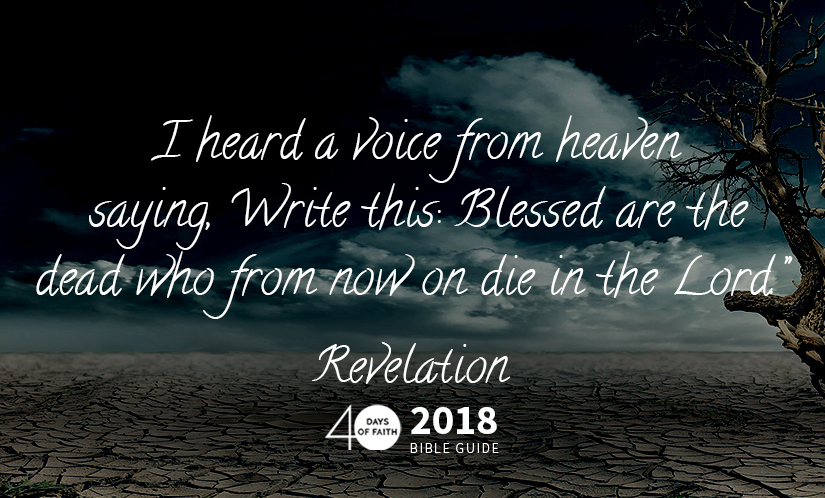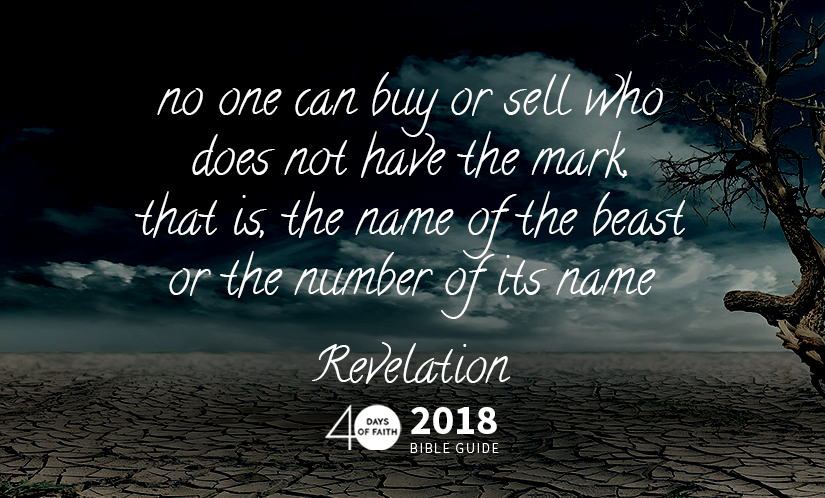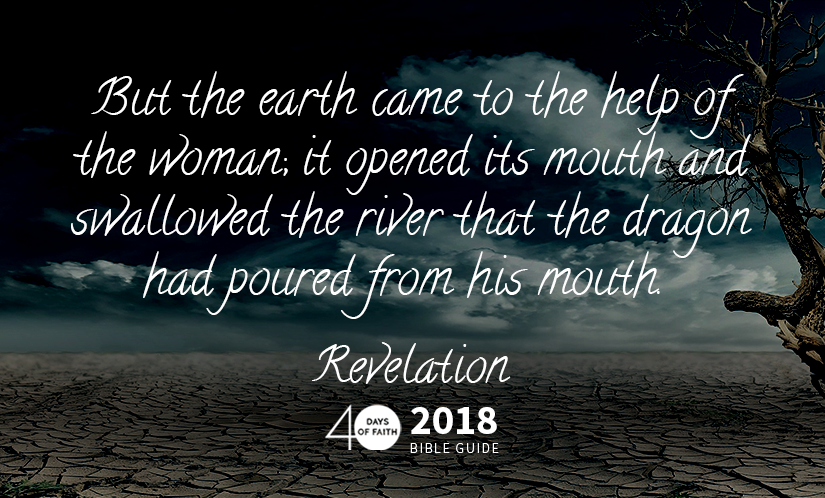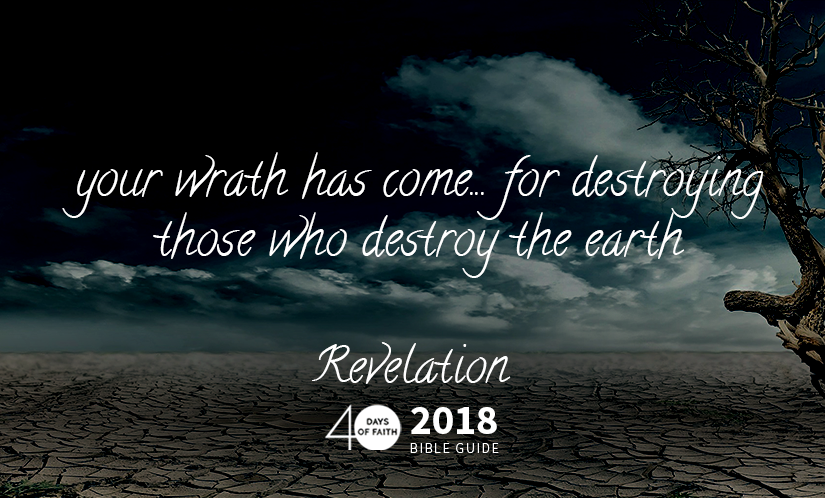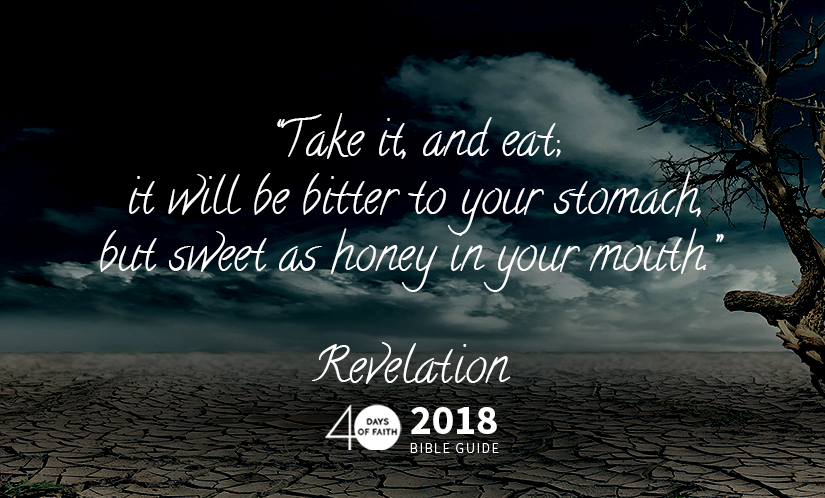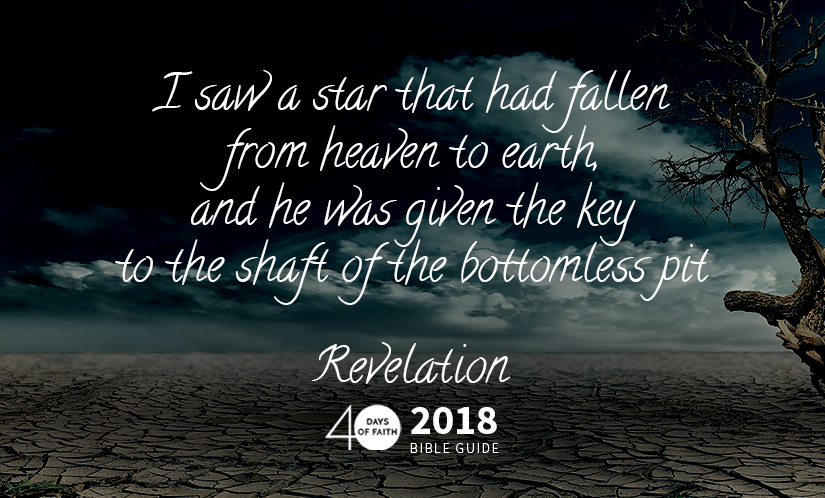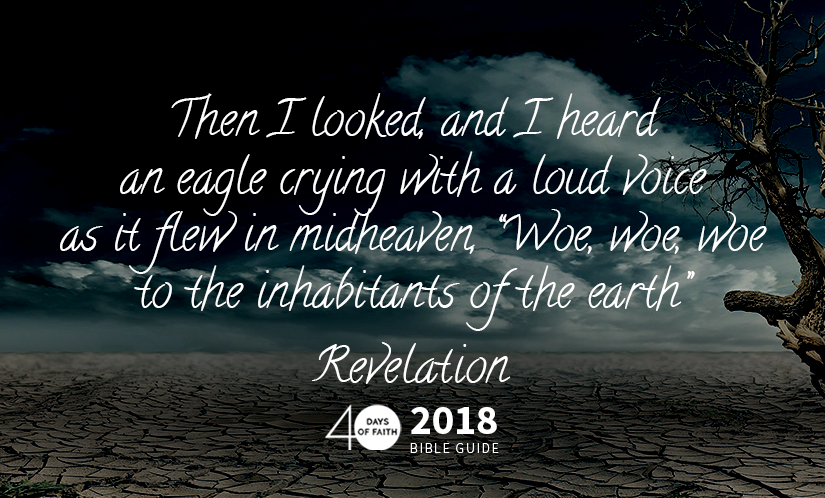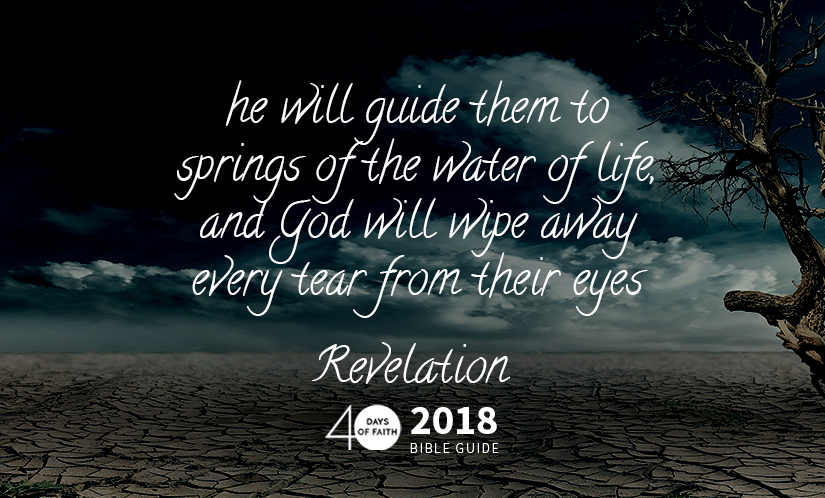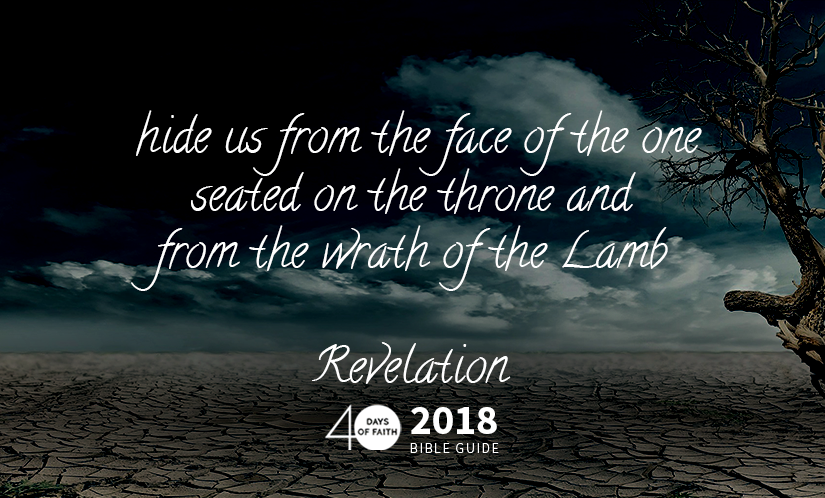Previously in Revelation
20And the wine press was trodden outside the city, and blood flowed from the wine press, as high as a horse’s bridle, for a distance of about two hundred miles.
Day 20 – 4th Friday
Revelation 15:1-8
15 Then I saw another portent in heaven, great and amazing: seven angels with seven plagues, which are the last, for with them the wrath of God is ended.
2And I saw what appeared to be a sea of glass mixed with fire, and those who had conquered the beast and its image and the number of its name, standing beside the sea of glass with harps of God in their hands. 3And they sing the song of Moses, the servant of God, and the song of the Lamb:
“Great and amazing are your deeds,
Lord God the Almighty!
Just and true are your ways,
King of the nations!
4Lord, who will not fear
and glorify your name?
For you alone are holy.
All nations will come
and worship before you,
for your judgments have been revealed.”5After this I looked, and the temple of the tent of witness in heaven was opened, 6and out of the temple came the seven angels with the seven plagues, robed in pure bright linen, with golden sashes across their chests. 7Then one of the four living creatures gave the seven angels seven golden bowls full of the wrath of God, who lives forever and ever; 8and the temple was filled with smoke from the glory of God and from his power, and no one could enter the temple until the seven plagues of the seven angels were ended.
Points of Interest
- “seven angels with seven plagues” – In John’s culture, if something was worth saying once, it was worth repeating in slightly different language. The seven angels of judgment from Revelation 14 are about to come back, this time with bowls in their hand.
- “conquered” – This is in many ways the goal of this life, according to Revelation – withstand suffering, don’t buy into the false promises of violence and wealth and pleasure that harm your soul or anyone else’s, and learn faithfulness to Jesus, who is faithful to us. This is what conquering looks like.
- “song of Moses” – The hero of past Jewish deliverance joins in song with the Lamb, whose death and resurrection is for the liberation of the whole world. While this song is very short, it calls to mind both of Moses’ songs in the Old Testament, his Exodus 15 victory song over oppressive evil, and his Deuteronomy 32 song that calls people to trust God and not the many false promises of security that come our way in pluralistic times.
- “all nations will come” – The song reiterates the hope of the worship scene in Revelation 7, that people of all the nations – who have fought one another in our Beast-driven violence – will together worship God instead.
- “the temple was filled with smoke” – However we’re supposed to understand these scenes of judgment in the middle of Revelation, we’re meant to find the presence of God here. The temple filling with the smoke of incense and burnt offerings was meant to evoke God’s unseen presence. The exposure of all our society’s lies and violence, and even the exposure of our own collaboration with it all, isn’t meant to scare or harm us but to find God again.
Spiritual Exercise
This week, we respond to the idea of judgment by practicing critique and truth telling – noticing places in our own contemporary American consumer empire that overpromise, lie, or do violence. Consider anything in your upbringing that has led to you fear or resent other nations or cultures. Ask God to help you to see all the peoples of the earth as potential friends and partners in worship instead.
A Direction for Prayer
Pray for your church’s journey of faith and worship, that increasing devotion to God will lead to deeper communion with people from all nations and deeper confidence that God is with us on earth.
The Bible Guide
This blog post is part of a Lenten journey through the book of Revelation. Every year during the season of Lent, we take a focused look at a portion of Scripture as part of our communal spiritual practice. This year, we are exploring what it means to be Children of God in a Fractured World, with Revelation as our lens. On Sundays, we’re exploring this with our sermons; on weekdays, we’re doing so with our bible guide. The bible guide series starts here.


